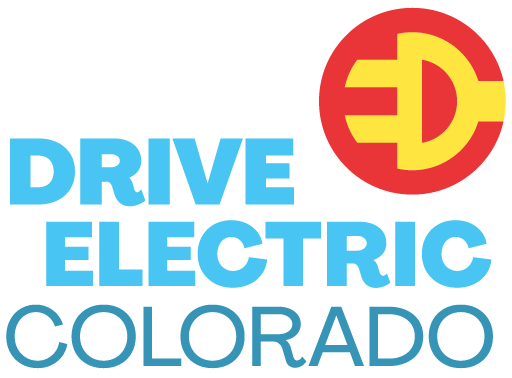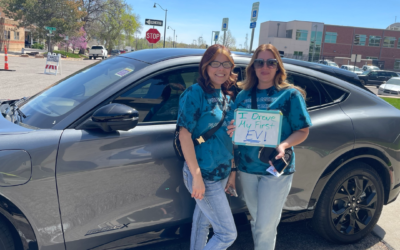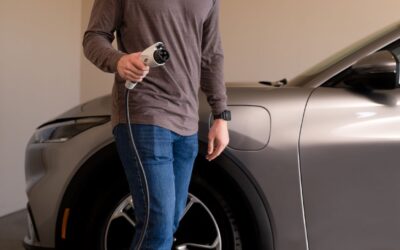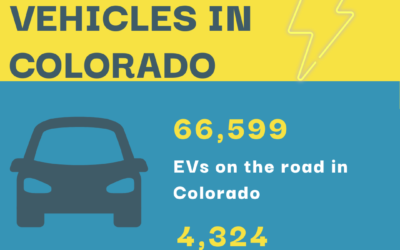In 2019, the Colorado State Legislature passed the Senate Bill 19–077, which requires the state’s regulated electric utilities, namely Xcel Energy and Black Hills Energy, to develop Transportation Electrification Plans (TEPs). The aim of the bill is to accelerate the transition away from fossil fuels and to usher in an electric transportation system. Transitioning towards electricity as a transportation fuel will provide an opportunity to combat climate change, improve air quality, improve national security by divesting in fossil fuels, and save consumers money on transportation and energy bills.
In Colorado, transportation emissions account for 25 percent of statewide emissions, leading to worsening levels of air pollution across the state. The Colorado Front Range is dangerously out of attainment for atmospheric Ozone levels and is steadily getting worse. Switching to zero-emission vehicles, including electric vehicles (EVs), is one of the key solutions to combating smoggy skies and poor air quality across the state.
Xcel Energy filed their Transportation Electrification Plan in May 2020, kicking off a 6‑month hearing process at the Public Utilities Commission (PUC). In the TEP, Xcel Energy identified three key challenges to EV expansion: a) a lack of information and awareness regarding EVs, b) high upfront costs associated with purchasing EVs and charging infrastructure, and c) suboptimal incentives to EV charging when it is most beneficial to the electric grid.
Under the plan, Xcel proposed a $102 million investment over 3 years in electric vehicle charging infrastructure, advisory services for corporate and government fleets, and an EV education and awareness program for customers. About half of the total investment, up to $48 million will be used to build charging stations at commercial buildings for both employees and fleet EV charging. Additionally, Xcel Energy has pledged 15 percent of the investment towards education and support for low-income customers.
The plan is divided into five portfolios: residential, multi-unit dwellings (MUDs), commercial, advisory services, and research, innovation, and partnerships (RIP).
Residential Programs include:
- Home wiring rebates for standard and low-income homes for Level 2 chargers, or
- A home charging service fee, which will pay off the infrastructure in segments.
- Choice of joining an optimization program, which incentivizes the consumer to charge their car during off-peak hours, when rates are lowest and electricity demand is down.
- Customers will receive an annual incentive for on-going participation in optimization programs.
Multi-Unit Dwellings Program:
- Offers a choice between installing their own charging equipment or selecting equipment from Xcel Energy's pre-approved list. Individual EV drivers will then be charged the residential rate for energy consumption bundled with a customer charge that covers the cost of the equipment and installation.
- In other words, over time, EV drivers will be paying for the installation of the device in their MUD.
- Low-income rebates are available to housing units that meet the income qualifications.
- New construction on buildings that exceed code requirements are also eligible for rebates.
Commercial properties have multiple participation programs:
- Fleets and Workplaces:
- Xcel Energy will provide EVSE and the commercial entity would pay a monthly fee for use of the infrastructure.
- Low income rebates are available for both Level 2 and fast chargers (DCFC) here.
- Community Charging Hubs:
- Xcel Energy will partner with municipalities that provide EVSE at lower upfront costs (i.e. rebates).
- This type of program aims to facilitate widespread adoption of EVs across transportation network companies, like Lyft and Uber, local transit authorities, and car share services.
- Xcel will also solicit applications for public DCFC chargers 4x annually through a grant program.
- Finally, Xcel proposes to own and operate their own public charging stations to support areas that may not be met by a competitive market, particularly in low-income or rural regions.
The Research, Innovation, and Partnerships Program is meant to boost creative approaches to advancing the electrification market. A great example of this is promotion of a school bus grant program for school districts throughout the state.
Finally, Advisory Services will be available to residential customers, fleet customers, communities, and diversity-groups (including access to materials in both English and Spanish).
The hearing process to secure approval for Xcel Energy’s EV investments at the Public Utilities Commission is currently underway. A final decision is expected in early 2021.




